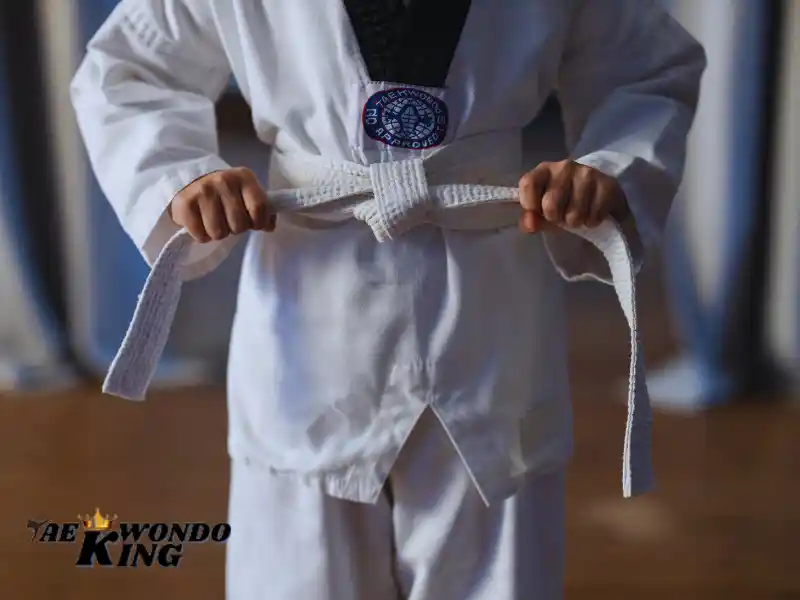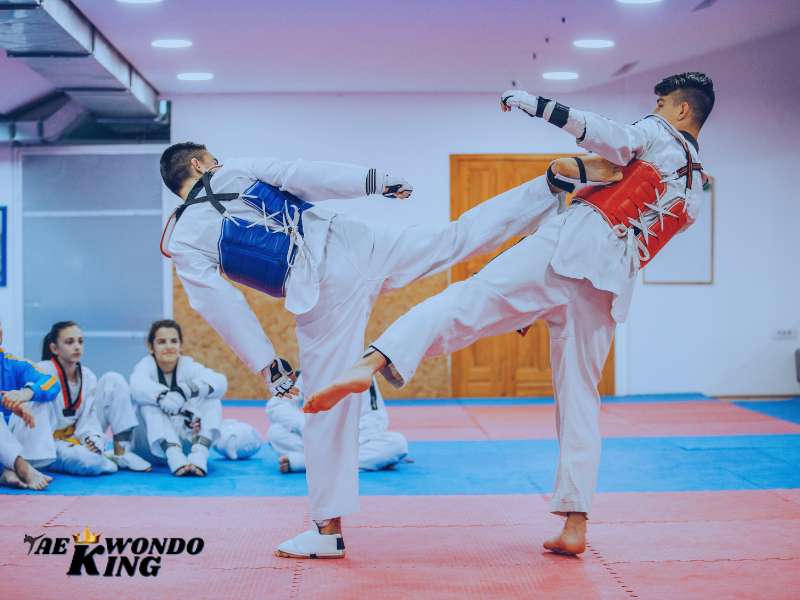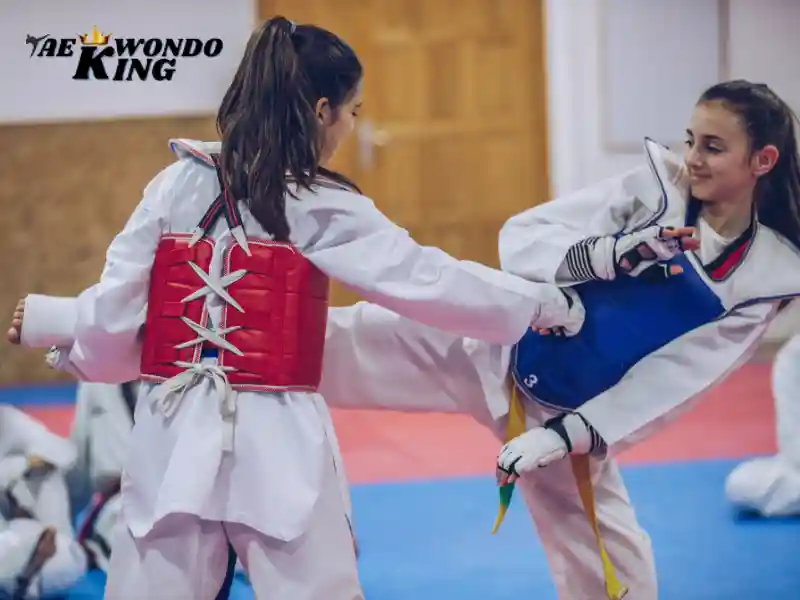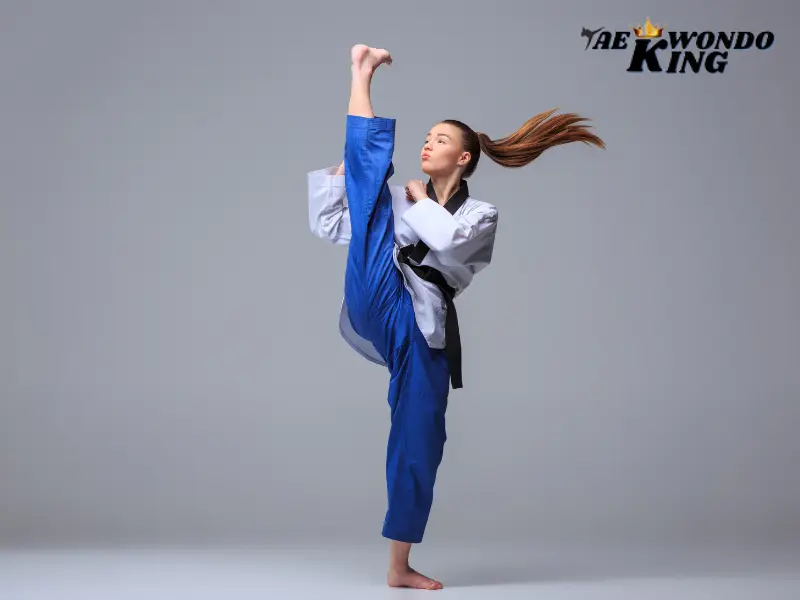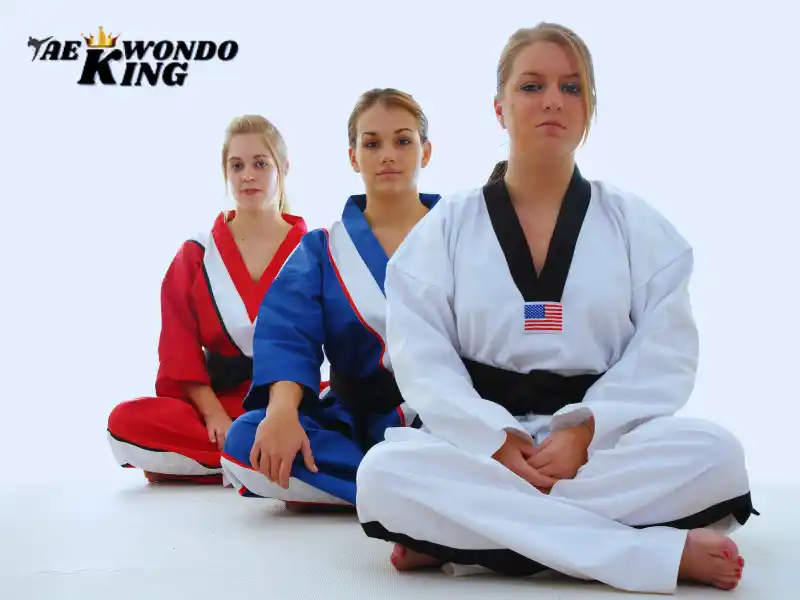
Do you know why women fail in martial arts? Do you think this is because they lack strength, stamina, or ability? Maybe, but there are many other reasons. As a woman martial artist, I would like to share my own experiences and learnings in the world of martial arts and women’s fitness.
In martial arts, we often see men and women as separate entities. Men are good at punching and kicking, while women are good at taking a beating. But what about the women who want to train in martial arts? We wanted to learn how women who practice martial arts feel about it. This infographic was created based on our interview with 3 students who practice martial arts. With the increasing popularity of women joining the martial arts world, we wanted to share our top seven reasons why so many women fail in martial arts.
Here’s an excerpt from our interview with “The Master” Bruce Lee:
“If you learn martial arts, don’t go out for power or speed. You will learn how to protect yourself, how to defend yourself. You will learn how to overcome your enemies.”
Many people start with martial arts because they want to be fit, strong, or tough. They get there but never seem to learn or grow. Others start martial arts to learn self-defense skills and protect themselves. It turns out, both reasons can be true at the same time. There is a common misconception that women lack the physical strength to excel in martial arts, or that they would be better off in sports. Here’s why that’s not true.
Top 07 Reasons Women Fail in Martial Arts
Lack of knowledge of Martial Arts
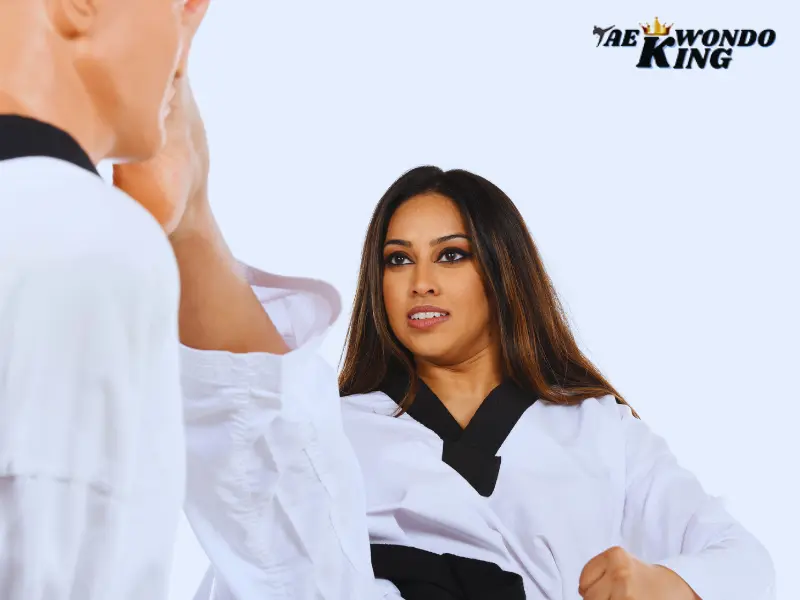
To understand how martial arts will help you gain a better understanding of your body and how it works, you need to know a little about what is known as the human body. So, what are some of the major components that make up the body? The most common ones include the brain, heart, kidneys, lungs, and spinal cord. Other organs like the liver and intestines make up a small part of our overall body.
Here’s my friend, a black belt. He was teaching the class. His students were following his lead. They had no idea what he was talking about. I didn’t know martial arts, but I did understand the concepts of being relaxed and focused. I could follow along. But I was still confused. And I got frustrated because I felt like a fraud. I wanted to know what I was doing wrong.
When people start practicing martial arts, they are usually overwhelmed by the amount of information available. There are thousands of books, websites, and even video courses on every topic imaginable. So, how can they choose what to learn? How do they make sure they don’t just waste their time and money?
This blog post will demonstrate how a lack of martial arts knowledge can be a major problem for a student. The issue comes down to one word: Knowledge. No matter what discipline of martial arts you’re studying, you must be able to recognize the differences between various techniques. This requires a mastery of understanding the principles and mechanics behind the different types of movements involved in martial arts.
Negative Attitudes Learn in Martial Arts
The second principle is negative attitudes. I want to talk about this one because I’ve seen it play out time and time again in eCommerce. I’m talking about the consumer who comes into a store, sees the product they are interested in, tries it on, and is completely indifferent. They don’t even look at the price. They just walk away. Why? I believe it’s because they have a negative attitude toward the product. It doesn’t matter if you’re a positive person or a negative one. The key is to understand that if you want to change someone else’s mindset; you have to think differently. If you want to get someone to stop being negative, you have to stop thinking negatively.
The process of changing a person’s mindset takes time and patience. Think about how you feel when you see a bully. You might feel scared, annoyed, or angry. These are emotions that we can take into our daily lives. We don’t feel them often, but when they come up in our lives, we know how to deal with them. We might try to avoid feeling them or pushing them away; but the more we think about how we feel about something, the more likely we are to experience that emotion. The same goes for negative emotions. If we think about a situation enough, we’ll probably end up feeling a negative emotion. It takes practice to learn how to manage our emotions, and it’s not always easy.
Lack of interest in Martial Art
“Lack of interest to learn in martial arts” is a common phrase. People don’t want to study martial arts because they don’t want to improve themselves, it’s hard to study martial arts, or because they don’t think they will become experts. These are just some reasons why people lack interest in studying martial arts. All of them are wrong. Every person has the potential to be an expert in any activity.
If you practice something long enough, you’ll become an expert in that activity. The third principle is a lack of interest in learning. I had many times to be with my friends and the people who knew I was a martial artist but I never wanted to learn anything, and I never wanted to be a martial artist. So I never practiced any kind of martial arts. If you don’t like something, you’ll always have something to say against it. I never liked anything because I thought everyone else was better than me. I only liked my friends and my family.
Martial arts instructors use interest as a way to motivate students. Interest is often related to personal identity and self-concept. When a student identifies with an activity or sport, there is a greater chance that he or she will participate and become interested in it. If a martial arts instructor makes the effort to identify with and understand the interests and concerns of his or her students, then he or she can relate to them better. To get the most out of your martial arts classes, you must put some effort into learning the basics. You’ll need to get comfortable with new techniques, gain a greater understanding of the art, and develop a deeper appreciation for its philosophies.
No Desire to learn Martial Arts
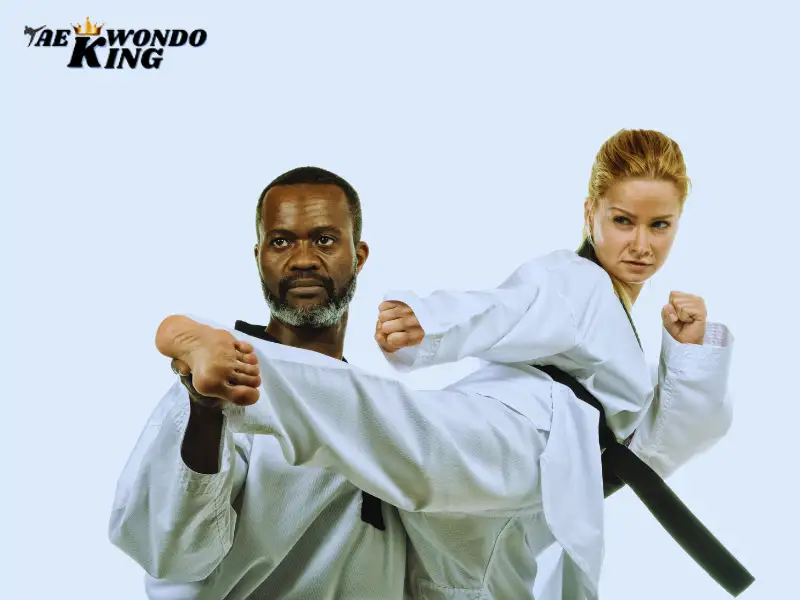
Martial arts are tough. But they are not hard. People who try them once, twice, or even three times are amazed at how much they want to keep going. They tell their friends about how much they like it and ask others to join in. Why does this happen? There are two main reasons, one of which is the power of association. You can see this phenomenon when someone tries yoga for the first time.
At first, they may not enjoy it, but after a while, it becomes something they want to do again. People love to be associated with what they like. We all want to be part of the crowd. Martial arts are similar. Try it for the first time. Try it again. He knew he would not enjoy learning. He knew there would be pain, discomfort, and fatigue.
The goal of any discipline is to master a skill or knowledge or even achieve mastery over something. It’s not just knowing how to use the skillet; it’s also knowing how to do it so well that it becomes second nature. For martial artists, mastery means that it becomes a part of us. It becomes a habit. After practicing for three years with the same teacher, he stopped training with him and sought out a new instructor. He found one who was very different and was impressed with his attitude. The instructor was young, enthusiastic, and fun to train with.
No Self-Confidence to Learn Martial Arts
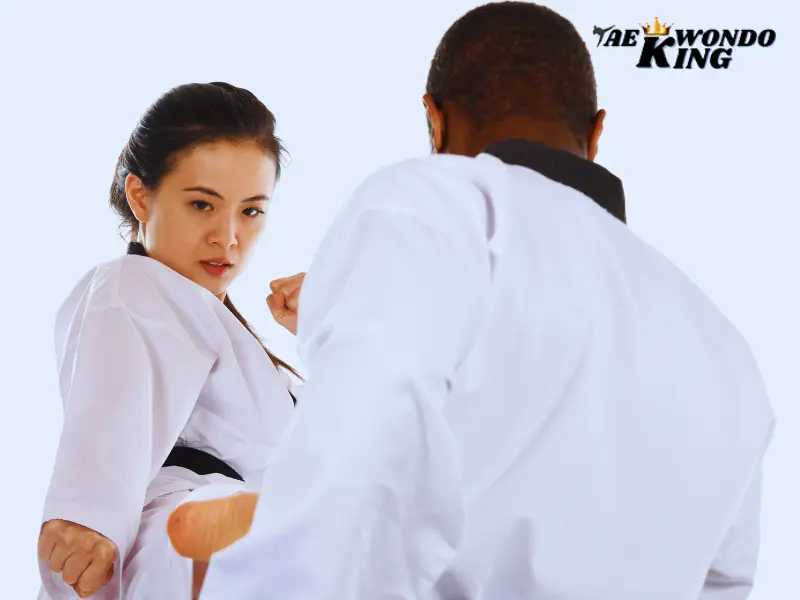
While you practice, you can overcome any fears that you may have and develop skills, confidence, and awareness. They’re a great way to exercise the mind, body, and spirit. I learned from my dad the importance of staying focused and practicing, practicing, practicing. He believed that the quality of a man is reflected by the consistency of the quality of his work.
To master any skill, you must begin with some form of practice. Whether you spend a few hours a week working on your golf swing or a few years studying karate, the amount of time you spend working on the task is irrelevant. What matters is that you spend some time on it. The same goes for building your self-confidence.
You need the self-confidence to learn anything new. I don’t know why this is true, but it is. Self-confidence is the key. You must be confident enough to ask questions, fail, and try again. When you know you are willing to try something, then you are open to learning whatever is involved in that activity.
Everyone who learns martial arts has the self-confidence to learn martial arts. But when someone says that he/she does not have the confidence to learn martial arts, that means he/she does not have the necessary courage to leap. Martial arts are known to build self-confidence.
Poor Training Methodology for Learning Martial Arts
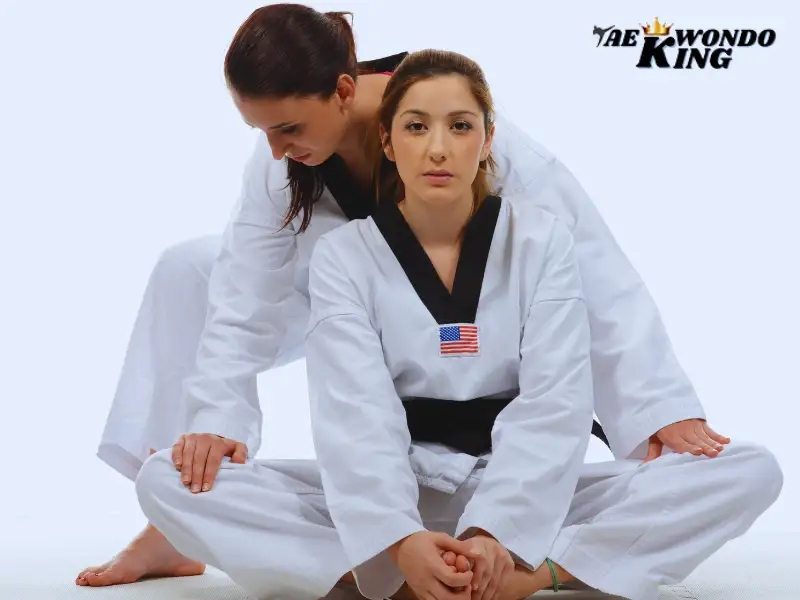
The first thing I noticed about his teaching method was how he was never satisfied. This was most apparent when I first entered his school. I thought he was going to be teaching me one specific style, but he never stopped teaching me something new and surprising. He never stopped learning himself and always tried to teach his students better than he was taught. He also had a way of making his lessons very interesting.
All of this added up to a teaching style that left me wanting more. So I decided to see if I could take this same approach to train myself and see if I could learn any of the styles that were on his curriculum. I was quickly rewarded. In just two weeks, I learned all the styles in his curriculum and could perform basic techniques.
To ensure that the students were learning to use their weapons, the instructor tested the students throughout the training. After each practice session, he asked the students to demonstrate their weapon skills. He watched the students closely and graded their performance. If a student performed poorly or made mistakes, he would tell the student to try again. As the training went on, the students improved, demonstrating more and more skills.
Fear of Injury to learning the Martial Art
I fear many times when I see people walking down the street wearing shorts, short skirts, and tank tops (or no shirt at all). I always wonder if they have any injuries from the day. If they have injuries, the shorts, and short skirts allow you to see those injuries. I know that sometimes people don’t want to be seen like that, but I also know that some people just don’t care. Some people think that they can walk around like that without being seen.
You should always be prepared for someone to see you. Here, fear of injury was the only reason I got involved in the class. Not that I wasn’t having fun already. I didn’t just want to learn how to protect myself; I wanted to learn because it made me feel better about myself. This is what drove me forward, and what kept me engaged. The class was intense but in a good way.
How can a lack of self-confidence affect women’s progress in Martial Arts?
A lack of self-confidence can have a significant impact on a woman’s progress in Martial Arts. It can hinder her ability to fully engage in training, learn new techniques, and perform at her best. Without self-confidence, she may doubt her abilities, second-guess her decisions, and struggle to push past her comfort zone. This can ultimately result in slower progress, decreased motivation, and a lack of fulfillment in her Martial Arts journey. Building self-confidence is crucial for women in Martial Arts as it enhances their overall performance, mental resilience, and enjoyment of the sport.
What are the common reasons why some women might struggle in Martial Arts?
Various factors can contribute to why some women may struggle in Martial Arts. One frequent reason is the physical disparity between men and women in terms of strength and size, which can pose additional difficulties for women when competing against male opponents. Another factor is the lack of representation and role models within the industry, making it challenging for women to find the necessary support and encouragement.
Additionally, societal stereotypes and expectations surrounding femininity and aggression can create obstacles for women who wish to participate in Martial Arts. It is crucial to address these issues and foster inclusive and supportive environments to ensure that individuals of all genders can excel in Martial Arts.
Are there specific physical barriers that women often encounter in Martial Arts?
Yes, there are specific physical barriers that women often encounter in martial arts. Some of these barriers include differences in strength and size compared to male opponents, which can make it challenging to execute certain techniques. Additionally, women may face unique obstacles related to flexibility, balance, and body mechanics. However, it’s important to note that with proper training, technique, and strategy, women can overcome these barriers and excel in martial arts. Many martial arts schools offer specialized programs and training to address these specific challenges and create an inclusive and empowering environment for women practitioners.
Are there societal or cultural factors that contribute to women facing difficulties in Martial Arts?
Yes, there are societal and cultural factors that contribute to women facing difficulties in Martial Arts. Some of these factors include gender stereotypes and biases that perceive martial arts as a male-dominated activity, lack of representation and visibility of women in martial arts, limited access to training facilities and resources for women, and the existence of gender-based discrimination and harassment within the martial arts community. These factors can create barriers and challenges for women who are interested in practicing martial arts, but efforts are being made to promote inclusivity and gender equality in the martial arts world.
What role does self-doubt play in women’s experiences with Martial Arts?
Self-doubt can have a significant impact on women’s experiences in Martial Arts. Many women may face societal expectations and stereotypes that discourage them from participating in combat sports or make them question their abilities. This self-doubt can negatively affect their confidence, motivation, and willingness to push themselves in training and competitions. However, it’s important to note that self-doubt is not limited to women and can affect individuals of any gender. By creating a supportive and empowering environment in Martial Arts, we can help address self-doubt and provide opportunities for women to succeed in the sport.
How can female Martial Artists overcome challenges related to strength and agility?
Female martial artists can overcome challenges related to strength and agility by utilizing various strategies. One effective approach is to prioritize the development of technique, speed, and flexibility, as these qualities are crucial in martial arts. Another beneficial strategy is to engage in strength training exercises that are specifically tailored to meet their individual needs, such as resistance training or bodyweight exercises.
Additionally, maintaining a healthy lifestyle and practicing proper nutrition can significantly contribute to overall physical fitness and performance. Lastly, seeking out women’s martial arts classes or finding female mentors and role models can provide valuable support, encouragement, and insights that are unique to the experiences of female martial artists.
How can women balance the demands of Martial Arts training with other life responsibilities?
To balance the demands of Martial Arts training with other life responsibilities, women can consider the following strategies:
1. Time management: Prioritize and schedule your training sessions alongside other commitments, such as work, family, and personal obligations. Create a routine that allows for dedicated training time without neglecting other important aspects of your life.
2. Communicate and negotiate: Openly communicate with your family, friends, and support system about your training goals and the time commitment it requires. Seek their understanding and support, and negotiate ways to accommodate both your training and other responsibilities.
3. Set realistic goals: Be mindful of your limitations and set realistic goals for your training. It’s important to find a balance that allows you to progress in Martial Arts while also maintaining a healthy and fulfilling life outside of training.
4. Seek support and assistance: Don’t hesitate to ask for help when needed. Reach out to fellow Martial Arts practitioners, instructors, or training partners for advice, guidance, or assistance in managing your training alongside other responsibilities.
5. Self-care: Prioritize self-care and ensure you’re taking care of your physical and mental well-being. This includes proper nutrition, adequate rest, and finding time for relaxation and stress management techniques.
Remember, finding balance is an ongoing process, and it’s important to be flexible and adaptable as life circumstances change. With proper planning, communication, and self-care, women can successfully balance the demands of Martial Arts training with other life responsibilities.
Are there strategies for dealing with gender biases in the Martial Arts community?
Yes, there are strategies for dealing with gender biases in the Martial Arts community. Here are a few suggestions:
1. Educate yourself and others about gender biases and their impact. Raise awareness within the martial arts community about the importance of equality and respect for all practitioners.
2. Encourage and support equal participation of all genders in martial arts classes, events, and competitions. Promote diverse representation in leadership roles and decision-making positions.
3. Provide training and support to instructors and coaches on how to create an inclusive and supportive environment for all students, regardless of their gender. This can include addressing unconscious biases, promoting fair treatment, and addressing any instances of discrimination or harassment.
4. Foster mentorship programs and highlight successful role models of all genders in the martial arts community. This can help inspire and empower individuals to overcome gender biases and excel in their practice.
5. Establish open channels of communication where individuals can report instances of gender bias or discrimination. Implement clear policies and procedures for addressing and resolving such issues in a fair and timely manner.
By implementing these strategies, the martial arts community can work towards creating a more inclusive and gender-equal environment for all practitioners.
What support systems can help women succeed in Martial Arts?
There are various support systems available to assist women in succeeding in Martial Arts. Some of these include women-only classes or training groups, which offer a safe and comfortable environment for women to train without feeling intimidated or judged. Additionally, having female instructors and mentors can provide guidance, support, and inspiration for women in martial arts.
Training with supportive partners who are committed to creating an inclusive atmosphere can also greatly enhance a woman’s experience and progress. Joining women’s martial arts organizations or communities can provide networking opportunities, access to resources, and a sense of belonging. Lastly, raising awareness about the challenges faced by women in martial arts and providing education on gender bias and discrimination can help create a more inclusive environment for women to thrive. It’s important to note that support systems may vary depending on the specific martial art and individual preferences.
Are there inspiring stories of women who have overcome obstacles and excelled in Martial Arts?
Yes, there are numerous inspiring stories of women who have overcome obstacles and excelled in the field of Martial Arts. One notable example is Ronda Rousey, who achieved the distinction of being the first American woman to earn an Olympic medal in Judo. Rousey then successfully transitioned to mixed martial arts (MMA) and went on to become the UFC Women’s Bantamweight Champion.
Another inspiring figure is Zhang Weili, who currently holds the title of UFC Women’s Strawweight Champion. Zhang Weili has broken barriers as the first Chinese champion in UFC history. Both Rousey and Zhang have demonstrated remarkable resilience, determination, and skill in their martial arts journeys, serving as a source of inspiration for others to pursue their own goals and overcome challenges.
In Conclusion,
There are several reasons why women may fail in martial arts. The most important of which is because they have unrealistic expectations of themselves. This often leads to disappointment and frustration. The other reason is they have low self-confidence, which makes them reluctant to participate in the sport. Women who have high self-esteem are usually the most confident in their ability to succeed. They will continue in their pursuit of success even if they fail. On the other hand, women who lack self-esteem will often give up on the sport once they’ve failed a few times. If you fall into either of these categories, you may need to address the problem before you can achieve your goals.
FAQ
Can women beat men in Martial Arts?
There is a common misconception that women cannot beat men in martial arts. However, the outcome of a martial arts match is not determined by gender, but rather by skill, technique, and practice. Women have shown time and time again that they are just as capable as men in martial arts, and numerous female martial artists have achieved great success in their field. It is important to remember that skill and dedication are what ultimately determine success in martial arts, not gender.
What martial arts do most women do?
Many women opt to participate in martial arts such as karate, taekwondo, jiu-jitsu, and kickboxing. These disciplines offer excellent physical exercise, as well as instruction in self-defense and the opportunity to develop confidence and strength. Women must find a martial art that they enjoy and feel at ease practicing.
What makes martial arts a must-have, especially to women?
Martial arts can be incredibly empowering for women. It teaches self-defense techniques, builds confidence, strength, and discipline, and provides a great workout to improve physical fitness. Martial arts also teach important values such as respect, perseverance, and focus. Overall, it is a great way for women to feel strong, capable, and confident in any situation.
What percentage of women do Martial Arts?
Martial arts have been gaining popularity among women in recent years. A survey by the Sports & Fitness Industry Association found that about 33% of martial arts participants are women, indicating a notable increase in female involvement compared to previous years. The various benefits of martial arts, including self-defense, physical fitness, and mental discipline, have attracted more women to participate in this empowering and challenging activity.
Can women kick harder than men?
Studies have found that men generally have greater muscle mass and strength than women, leading to the assumption that men can kick harder. However, kicking power is affected by various factors such as technique, speed, and agility. It’s important to note that individual physical fitness and training play a significant role in kicking power, and some women are capable of kicking just as hard, if not harder, than men. Ultimately, it comes down to the individual’s training, technique, and physical abilities, rather than simply gender.
Are girls’ lower bodies stronger than boys?
It’s a common misconception that girls’ lower bodies are not as strong as boys’, but that’s not necessarily true. Both boys and girls have the potential to develop strength in their lower bodies through exercise and physical activity. It’s important to focus on individual strengths and abilities rather than making generalizations based on gender. With the right training and dedication, both boys and girls can build strength in their lower bodies.
Who has stronger legs, Male or Female?
The strength of a person’s legs is not determined by their gender. It depends on various factors such as genetics, exercise, and overall physical health. Both men and women can have strong legs depending on their lifestyle and fitness routines. It’s important to focus on overall strength and fitness rather than comparing strength based on gender.

Founder, Owner, and CEO of TaekwondoKing.
He is one of the top 100 martial artists in the World and among the top 20 referees in Bangladesh.
Ehatasamul Alom is an esteemed Kukkiwon Certified Taekwondo 3rd Dan Black Belt with over 15 years of experience in this dynamic martial art. Born in Rajshahi, Bangladesh, Ehatasamul’s journey with Taekwondo began at the tender age of seven. His passion led him to compete at national and international levels, where he has bagged numerous awards and honors. He is also a member of the Taekwondo National Referee Panel.
With a Bachelor’s degree in Sports Science from the prestigious Rajshahi University, Ehatasamul has a deep understanding of the technical and scientific aspects of martial arts and some other martial arts.
In 2022, Ehatasamul created the “TaekwondoKing.com” to share his knowledge, Free Resources, Values, and Real experiences. His articles focus on Taekwondo training techniques, competition strategies, Sport Products Reviews, and the art’s rich history and philosophy. He also writes about the importance of mental fortitude and discipline, key aspects of his teaching philosophy. He has already launched many sports, Taekwondo, and health-related Free online tools. His goal is to inspire both beginners and seasoned practitioners worldwide through insightful and engaging content.
If you need any help, contact Ehatasamul Alom at any time.

